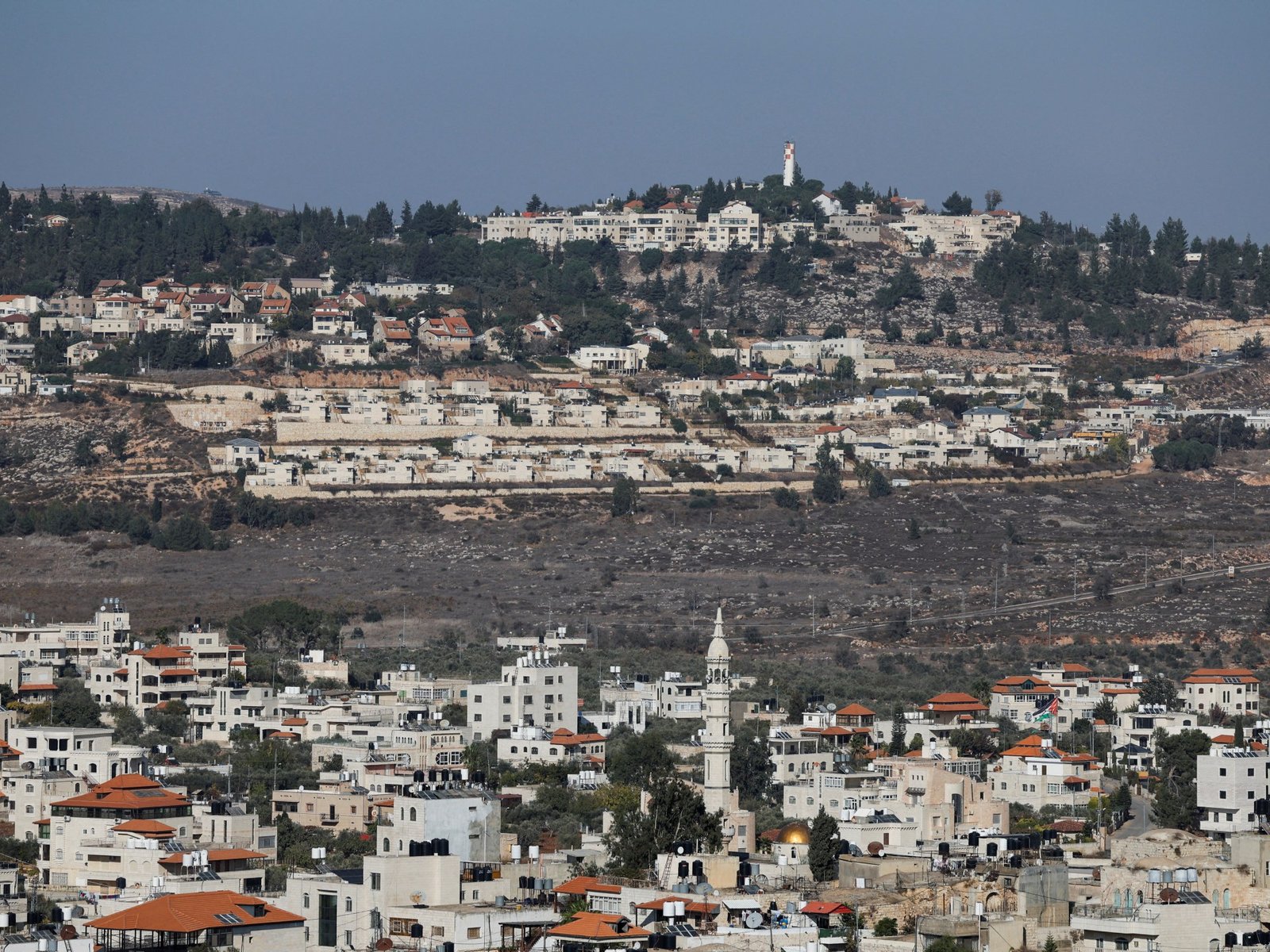Among the executive orders signed by US President Donald Trump after he was sworn into office on Monday was the lifting of sanctions imposed by former President Joe Biden’s administration on more than 30 Israeli settler groups and institutions. .
Settler violence has long been a fact of life for Palestinians living in the occupied West Bank. But attacks and theft of Palestinian land have increased since the start of Israel’s war on Gaza.
Trump’s move has been celebrated by Israel’s far right, although it came shortly after the new president called for a ceasefire in Gaza, angering the faction. So what can we learn from the lifting of sanctions and what will be Trump’s policy towards Israel and Palestine?
What restrictions were imposed on settlers?
Under the terms of the sanctions, individuals and entities were barred from all US property, assets, as well as access to the US financial system.
Who made the target of sanctions?
Since Israel’s occupation in 1967, illegal Israeli settlements have been built throughout the West Bank. The settlements are built on occupied Palestinian land, and are part of efforts by the Setter movement and the Israeli government to increase control over the West Bank. Palestinians insist that the settlements – where they are not allowed to live – effectively make the establishment of a Palestinian state impossible.
A number of individuals and organizations came under sanctions. Among them are the settlement development organization Amana, as well as its subsidiary Binyanei Bar Amana Ltd, both of which US officials have determined are umbrella organizations for violent and extremist settler activities.
Individuals such as David Chai Chisdai, who has been convicted of violence against Palestinians in Israel for more than a decade, were also included, as were many settlers who US authorities have tried to remove from Palestinian territories. But he was determined to establish illegal outposts or settlements. Svis Farm, founded by settler Zvi Bar Yosef, Described by an anti-occupation researcher Dror Etkes, as having been “responsible for some of the most brutal attacks I have ever heard of settler attacks.”
However, despite uncompromising statements from the Biden administration, Israeli Prime Minister Benjamin Netanyahu publicly objected to approving the ultra-Orthodox Netza Yehuda Battalion following a series of alleged abuses, including the arbitrary killing and torture of Palestinian civilians. The project was stopped.
Why did the United States impose restrictions on the citizens of its allies?
The sanctions come as the Biden administration faces pressure to use its power to stop Israel’s war on Gaza, including suspending arms sales.
Unwilling to do so, the administration took a number of low-key measures to influence Israel’s actions and signal its displeasure, such as sanctions on select settler groups and individuals.
In November, former State Department spokesman Matthew Miller said that both Biden and his Secretary of State, Anthony Blanken, had “repeatedly urged their Israeli counterparts that Israel stop violence against civilians in the West Bank.” More steps have to be taken and those responsible should be held accountable.”
The Israeli government has been dominated by far-right pro-settlement figures, including Finance Minister Bezalel Smutrich and Itamar Ben Gower, who was national security minister until late last week, when he announced the war between Israel and Hamas. He resigned in protest against the ceasefire agreement.
In November, Ben Guerr suggested that Israel annex the West Bank in response to an arrest warrant issued for Netanyahu by the International Criminal Court. Earlier that month, in anticipation of a Trump presidency, Smutrich went further and ordered that preparations be made for the annexation of the occupied territory this year.
Did sanctions limit violence?
No
Until 2024, the period when US sanctions are imposed. Recorded by the United Nations Office for the Coordination of Humanitarian Affairs (OCHA). The number of attacks was the highest in nearly two decades since OCHA began documenting such incidents, which said that “about 4,250 Palestinians destroyed 1,760 structures displaced, and about 1,400 incidents Among them were Israeli settlers in the West Bank, including East Jerusalem.”
Al Jazeera and the rights group Including Amnesty International has tracked numerous incidents of settler violence against Palestinian homes during Israel’s war on Gaza and consistently found that settler attacks were either ignored or ignored by security forces under Ben Guerr’s command. has encouraged them.
What has been the Israeli response to the lifting of sanctions?
Both Smotrich and Ben-Gvir celebrated Trump’s lifting of sanctions.
Posting on social media, Ben-Gvir wrote that he “welcomes the upcoming historic decision by US President Donald Trump to lift the sanctions imposed by the Biden administration on settlers in Judea and Samaria”. said using the term for the West Bank. Used by the Israeli government.
Finance Minister Smutrich was equally forthright, describing the sanctions as “a severe and blatant foreign interference in Israel’s internal affairs.”
I am deeply grateful to President Donald Trump for his just decision to lift sanctions imposed by the Biden administration against settlers and activists in right-wing organizations. The sanctions were gross and blatant foreign interference in Israel’s internal affairs and… pic.twitter.com/Lp1I8oFixa
— בצלאל סמותריש’ (@bezalelsm) January 21, 2025
Is this a sign of what Trump’s policy towards Israel and Palestine will be?
Although many in the pro-Palestinian camp give Trump credit for pushing for a cease-fire in Gaza, he was overwhelmingly pro-Israel in his first term and is likely to remain so for the next four years.
Trump has in the past been willing to give the Israeli right many victories even when he has gone against long-term US policy. For example, he moved the US embassy to Jerusalem and recognized Israel’s illegal annexation of the Syrian Golan Heights during his first term in office. He also proposed a measure that would recognize Israeli sovereignty over illegal settlement blocs in the West Bank.
Members of his current constituency include Mike Huckabee, Trump’s evangelical and pro-settlement pick for US ambassador to Israel, as well as “mega-donor” billionaire Miriam Adelson, who is said to support Israeli annexation of the West Bank. HA Heller, a senior fellow at the Israel Royal United Services Institute, is reported to support that ambitions for the region are coming.
The Trump administration has also nominated Elise Stefanik, a Republican congresswoman, as the US ambassador to the United Nations. Stefanik has spoken of Israel’s “biblical right” to the West Bank, and the number of UN votes against Israel as evidence of the organization’s “anti-Semitic roots”.
“Many of Trump’s picks, like Pat Hegseth for defense, or his new national security adviser, Mike Waltz, would suggest that we’re seeing very limited and limited restraint on Israel’s behavior,” Hellyer said. exists, it should be completely abandoned,” said Hellyer.











































